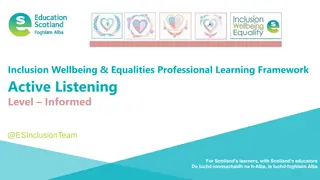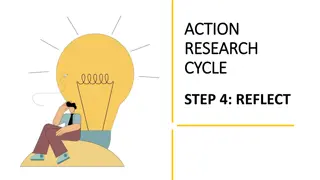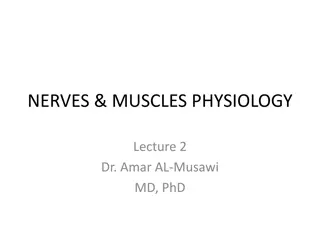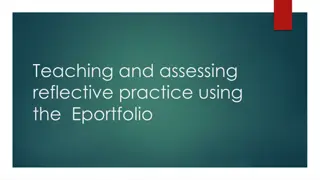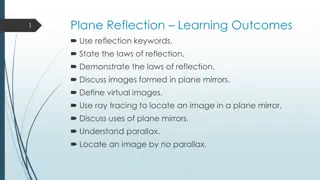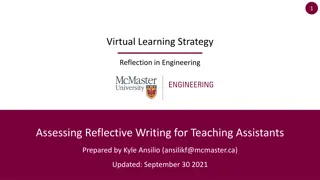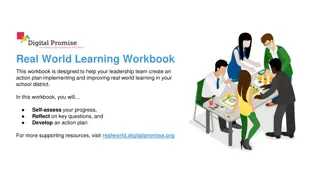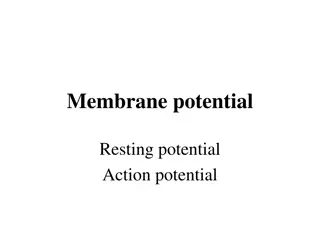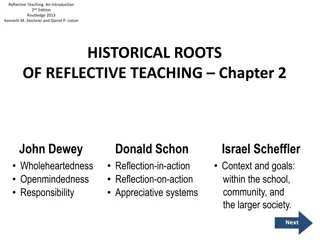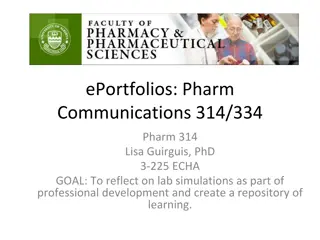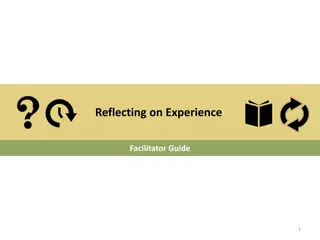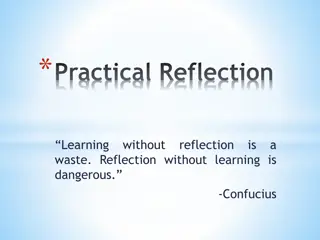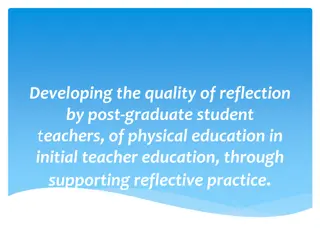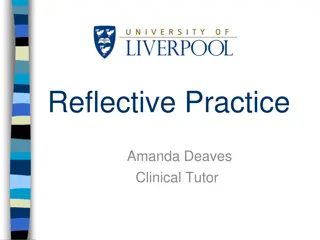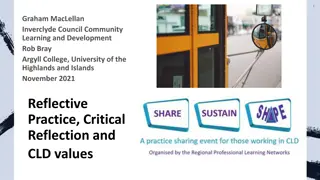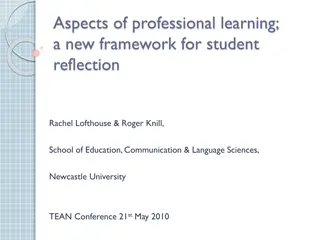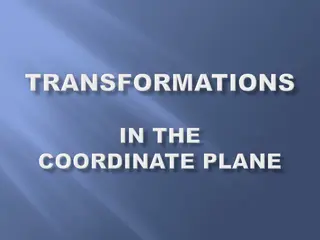Enhancing Learning Through Reflection: Insights and Action
Reflecting on experiences in the context of learning log entries can lead to new insights, learning, and personal growth. The process of reflection involves reviewing, analyzing, and evaluating experiences while drawing on theoretical concepts. Having a good attitude, open-mindedness, and essential skills such as critical thinking and self-awareness are key elements in the reflective process. Reflection can occur in action or after the fact, enabling practitioners to assess, understand, and learn from their experiences, ultimately leading to positive change and new learning opportunities.
Download Presentation

Please find below an Image/Link to download the presentation.
The content on the website is provided AS IS for your information and personal use only. It may not be sold, licensed, or shared on other websites without obtaining consent from the author. Download presentation by click this link. If you encounter any issues during the download, it is possible that the publisher has removed the file from their server.
E N D
Presentation Transcript
Reflecting on or during some experience in the light of know theoretical concepts or previous learning should lead to new insights into differentaspectsofthatsituation Outcome of reflection = LEARNING (Meziros, 1981)
Kemmis (1985) the process of reflection is more than a process that focuses 'on the head'. It is a positive active process that reviews, analyses and evaluates experiences, draws on theoretical concepts or previous learning and so provides an action plan for future experiences. Johns (1995) adds that reflection is a personal process enables the practitioner to assess understand and learn through their experiences. This results in some change for the individual in their perspective of a situationorcreatesnewlearning for theindividual.
Schn(1987): 1. Reflection-in-action (thinking on your feet) 2. Reflection-on-action (retrospective thinking)
GOOD ATTITUDE: 1. Open minded ness 2. Commitment to self enquiry 3. Readiness to change practice 4. Motivation (Richardson & Maltby1995, Gillings 2000)
SKILLS: 1. Information description or observation 2. Self Awareness openness, honesty, feelings 3. Critical Thinking analysis, describing own thought processes 4. Evaluation synthesis of above three, describing what needs to be learned, why and how. (Richardson & Maltby1995) = the ISCE criteria
1. Information provided 2. Critical Analysis 3. Self Awareness 4. Evidence for Learning
Reflective diaries They show your theirs, you show emyours!
Reflection is an active process Writing slows you down Richardson & Maltby1995 Zubbrizarreta1999 Tryssenaar1995
Its an integral part of practice and trainees need time to develop the skill. Make time during training and day to day practice to reflect You can t rush it and must be a dynamic part of working life

 undefined
undefined




